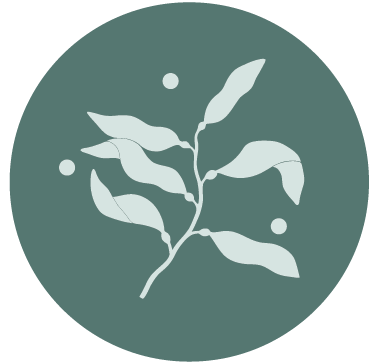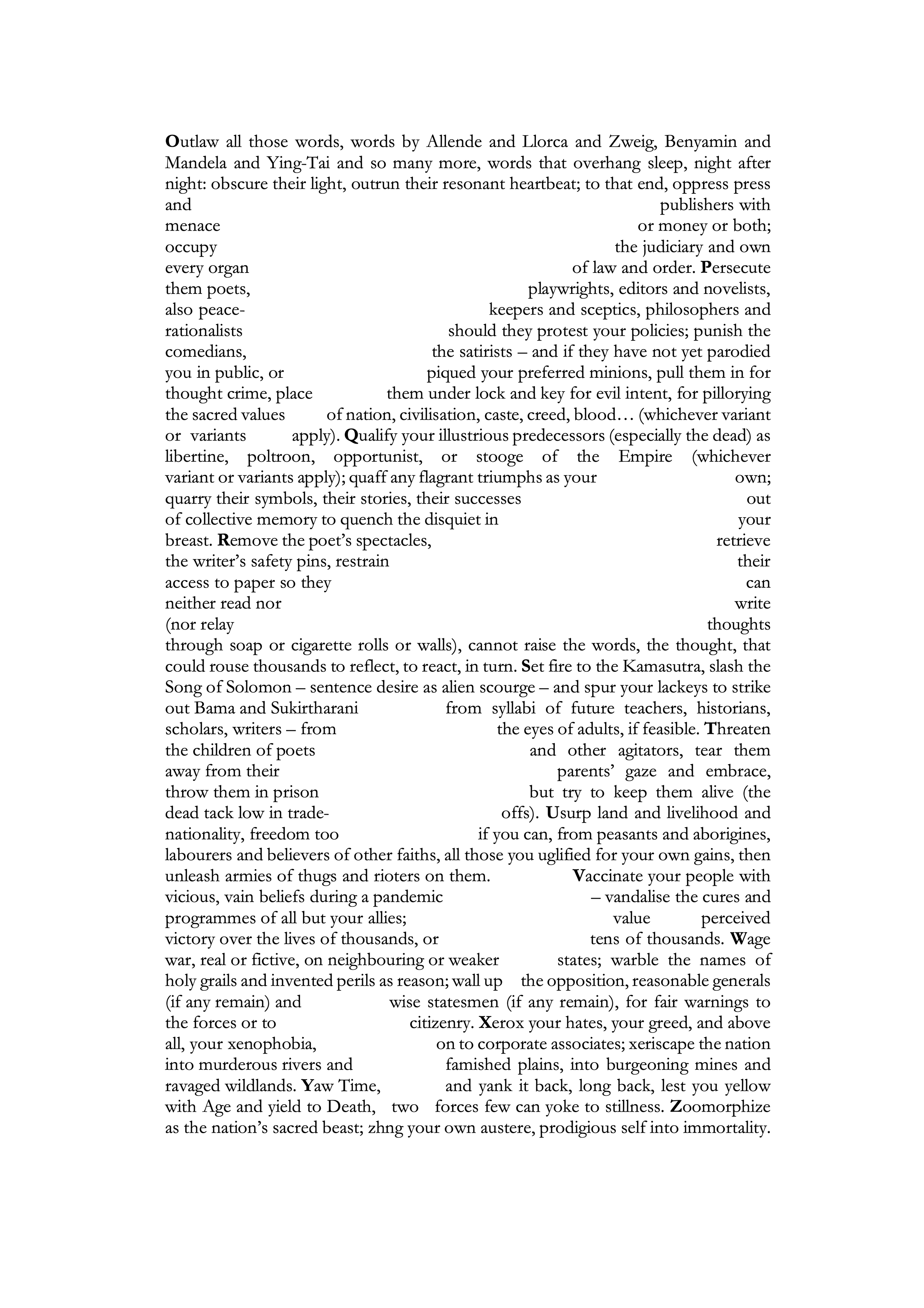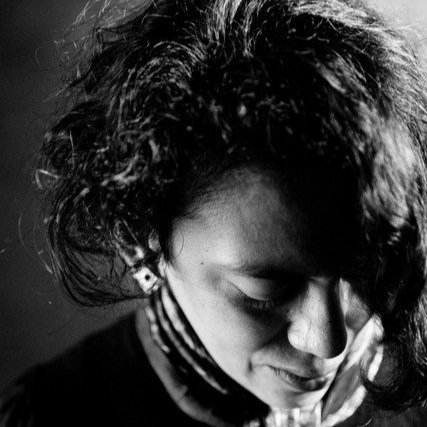Handbook for Aspiring Autocrats
Karthika Naïr
KARTHIKA NAIR AND ADAM BILES: RECORDED IN THE WRITER’S STUDIO AT SHAKESPEARE AND CO. PARIS
Karthika Naïr is a poet, fabulist, and librettist whose books include the invented fable The Honey Hunter, illustrated by Joëlle Jolivet and published in English, French, German, and Bangla. Until the Lions: Echoes from the Mahabharata, her reimagining of the foundational South Asian epic in multiple voices, won the 2015 Tate Literature Live Award for Book of the Year (Fiction) and was highly commended in the 2016 Forward Prizes (UK). Her latest book, A Different Distance (Milkweed Editions, 2021), renga written with American poet Marilyn Hacker, was a Ms. Magazine Recommended Read for fall 2021 and an Indie Next Selection for December 2021.
Naïr’s poetry has been widely published in anthologies and journals like Granta, Los Angeles Review of Books, Poetry Magazine, Poetry International, Indian Literature, The Bloodaxe Book of Contemporary Indian Poets and the Forward Book of Poetry 2017. She is a 2012 Sangam House Fellow, a 2013 Toji Foundation Fellow, and was awarded a Villa Marguerite Yourcenar Fellowship in 2015.
The dance pieces she has scripted and co-scripted have been staged at venues across the world, such as Théâtre de la Ville (Paris), Esplanade (Singapore), Sadler’s Wells (London), Lincoln Centre (New York City) and L.G. Arts Center (Seoul). These include Akram Khan’s DESH, Chotto Desh, and Until the Lions (also adapted from her book) and Carlos Pons Guerra’s Mariposa. An opera adaptation of Until the Lions, composed by Thierry Pécou and directed by Shobana Jeyasingh, premiered at Opéra national du Rhin (Strasbourg) in September 2022.
Favourite sea creature
My favourite sea creature is the feather oyster (family Pteriidae) — at the risk of being quixotic, I admit there is something irresistible about a being that has the capacity to turn an intruder (or what I’d broadly interpret as a threat) into something precious and beautiful. Even if that jewel then endangers it further, thanks to us humans.
Photo: Koen Broos





